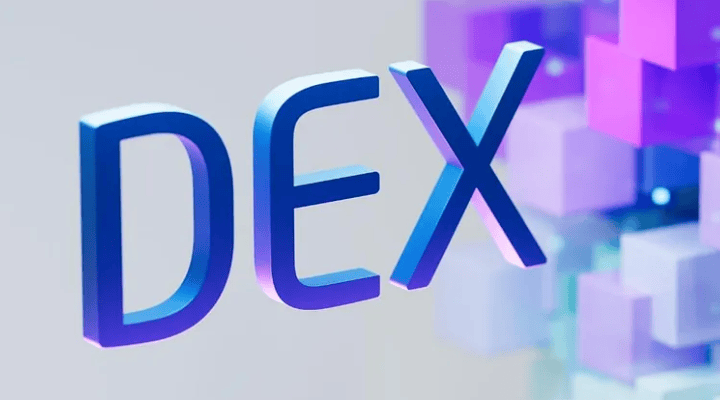What Is a Decentralized Exchange?
A DEX is a platform that allows users to trade crypto directly with each other without the need for an intermediary or central authority.
Unlike CEXs, which rely on a central server and company to facilitate trades, DEXs use blockchains to enable peer-to-peer transactions. This means that when you trade on a DEX, you do so directly from your own wallet, and the trade is executed through smart contracts — self-executing contracts with the terms of the agreement directly written into code.
For example, if you want to trade stablecoins for Ethereum, on a CEX, you would deposit your stablecoins into the exchange’s wallet, place an order to trade for Ethereum, and wait for the transaction to complete.
On a DEX, you would connect your own digital wallet, place the trade, and the transaction would be executed through a smart contract, bypassing the need for a central authority.
How do DEXs work?
Understanding how DEXs operate involves diving into two primary methods: Order Book DEXs and Automated Market Makers (AMMs). Each method has its own way of facilitating trades and managing liquidity.
Order Book DEXs
Order Book DEXs work similarly to traditional stock exchanges. They use an order book, which is a record of all buy and sell orders for a specific asset. When you want to buy or sell a cryptocurrency on an Order Book DEX, you place your order into this book. Other traders can then see these orders and match them with their own buy or sell orders.
For instance, imagine you want to buy some BNB using ETH. You place a buy order on the order book of a DEX. If another trader wants to sell Ethereum and their sell order matches your buy price, the trade is executed. This process is facilitated by smart contracts that ensure the trade happens according to the terms you set.
Currently, the biggest DEX to use an order book is Dydx. The platform facilitates over $200 million in daily volume as of August 2024.
Automated Market Makers (AMMs)
Automated Market Makers are another type of DEX model, and they work quite differently from Order Book DEXs. Instead of using an order book, AMMs use algorithms to create markets and facilitate trades. These algorithms manage liquidity pools, which are collections of funds provided by liquidity providers.
When you trade on an AMM-based DEX, you don’t place orders. Instead, you trade directly against the liquidity pool. For example, if you want to exchange Ethereum for Bitcoin, you interact with the pool of Ethereum and Bitcoin provided by other users. The price of the assets in the pool is determined by an algorithm, which adjusts based on supply and demand.
Uniswap is a popular example of an AMM-based DEX. Users provide liquidity by depositing their assets into pools, and in return, they earn a share of the transaction fees. The price of assets on Uniswap is determined by the ratio of assets in the pool, with the algorithm automatically adjusting prices as trades occur.
What are potential benefits of using a DEX?
DEXs offer several advantages over their centralized counterparts. One of the primary benefits is enhanced security. Since DEXs don’t hold users’ funds, there’s less risk of a large-scale hack affecting a significant amount of cryptocurrency. Users trade directly from their own wallets, reducing the chance of losing assets in case of an exchange breach.
Another key benefit is privacy. DEXs typically don’t require extensive personal information to use their services. You can trade without needing to provide identity verification, which appeals to users who value their privacy and wish to remain anonymous.
Additionally, DEXs provide greater control over your funds. On a centralized exchange, you have to trust the exchange to manage and protect your assets. With a DEX, you maintain control of your private keys and funds throughout the trading process. This decentralization reduces the reliance on a single entity, making the system more resilient.
What are some potential downsides?
While DEXs have many benefits, they also come with certain drawbacks. One of the main challenges is lower liquidity compared to centralized exchanges. Because DEXs operate on a peer-to-peer basis and lack the same level of order volume as centralized platforms, it can sometimes be harder to execute large trades at desired prices.
Another potential downside is the complexity of using DEXs. For newcomers to cryptocurrency, the process of interacting with smart contracts and liquidity pools can be confusing. Centralized exchanges often provide a more user-friendly interface, making them easier to navigate for beginners.
Furthermore, the speed and efficiency of DEXs can be an issue. Because transactions are processed through the blockchain, they can sometimes take longer to complete compared to the faster transaction speeds of centralized exchanges. Network congestion can also impact transaction times and costs, which might be inconvenient for users looking for quick trades.
DEX vs. CEX: What’s the difference?
The debate between DEXs and CEXs often boils down to a trade-off between control and convenience. Centralized Exchanges are managed by single entities and offer user-friendly interfaces, high liquidity, and faster transaction speeds. They act as intermediaries, holding users’ funds and managing trades.
In contrast, DEXs prioritize decentralization and security. They allow users to trade directly from their wallets and do not hold users’ funds, reducing the risk of large-scale hacks. However, they often face challenges such as lower liquidity, slower transaction times, and a steeper learning curve for new users.
For example, if you value the convenience of having an easy-to-use platform and high liquidity, a CEX like Coinbase might be preferable. On the other hand, if you prioritize security, privacy, and control over your assets, you might lean towards a DEX like Uniswap.
Conclusion
DEXs represent a significant innovation in the world of cryptocurrency trading. By removing the need for intermediaries and central authorities, they offer enhanced security, greater control, and privacy. However, they also come with challenges such as lower liquidity, complex interfaces, and slower transaction times.
Understanding how DEXs work, including the differences between Order Book DEXs and Automated Market Makers, can help you make informed decisions about where to trade your cryptocurrencies.
Whether you choose to use a DEX or a CEX depends on your personal preferences and trading needs. As the cryptocurrency space continues to evolve, DEXs will likely play an increasingly important role in the future of digital asset trading.

 English
English
 Deutch
Deutch
 Espanol
Espanol
 Francais
Francais
 Portugues
Portugues
 日本
日本
 한국인
한국인
 Türk
Türk
 Русский
Русский
 Tiếng Việt
Tiếng Việt

